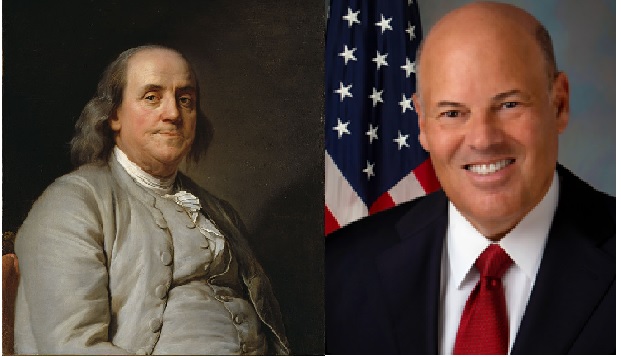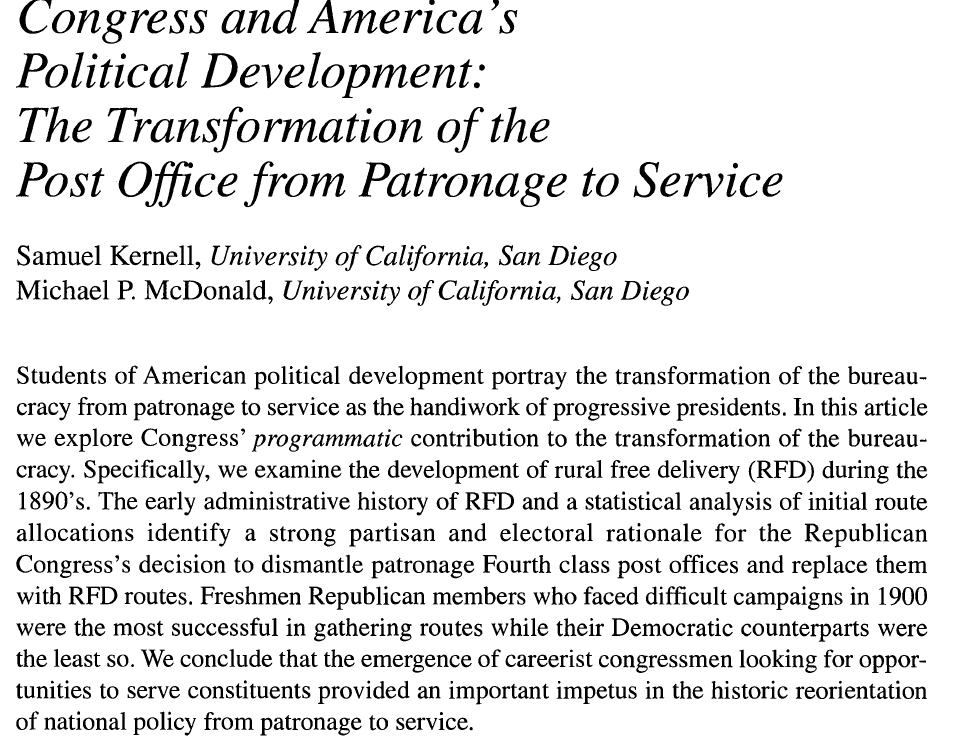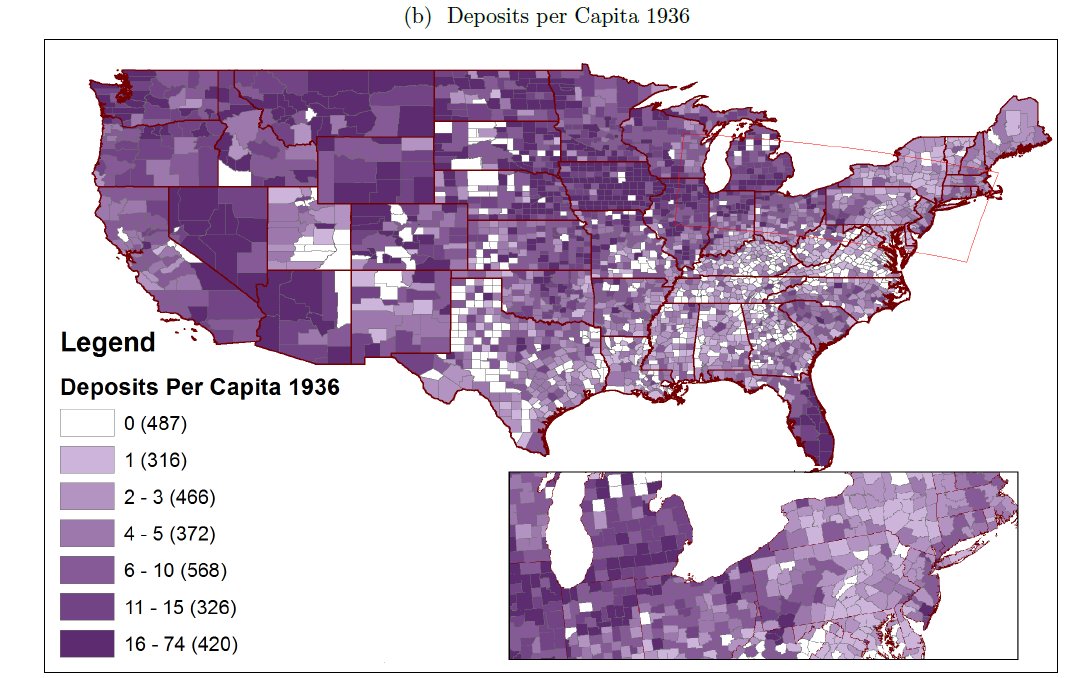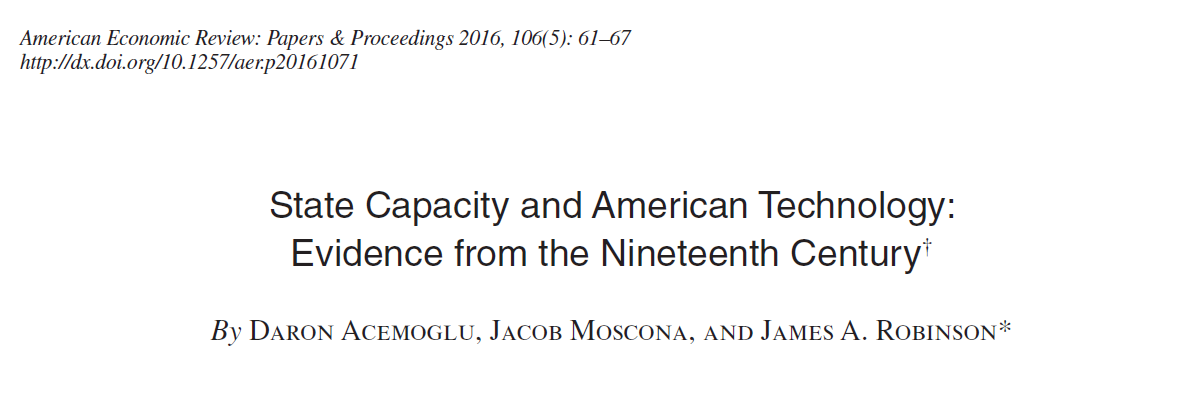Thing about state capacity: takes rare societal consensus + generations of effort to build public institutions like the post office, but just a few corrupt leaders to hollow them out, initiating doom loop of bureaucratic dysfunction-> de-legitimization. Sharing some readings: 1/6
First postmaster general was Ben Franklin, shining contrast to current, Louis DeJoy, a businessman with vested interests in weakening the USPS and first in decades without any agency experience (postmaster generals typically rise through ranks, sometimes from letter carrier). 2/6
The postal system was a vital institution of national integration/communication in early US history, but also a source of patronage until critical reforms like rural free delivery turned into a universal service: 3/6
https://www.jstor.org/stable/2991835?seq=1#metadata_info_tab_contents
https://www.jstor.org/stable/2991835?seq=1#metadata_info_tab_contents
Research shows that counties with +post offices (state presence) were more innovative during second industrial revolution, when US prospered. Also provided critical banking services during great depression: 4/6
Paper 1: https://economics.mit.edu/files/11927
Paper 2: https://www.nber.org/papers/w25812
Paper 1: https://economics.mit.edu/files/11927
Paper 2: https://www.nber.org/papers/w25812
Hollowing out begins when US Post Office Department was converted from a public "service-at-all-costs" cabinet department to a business-oriented, apolitical independent agency, the USPS, expected to minimize costs in reforms under Nixon. 5/6
Paper: https://www.jstor.org/stable/2392181?seq=12
Paper: https://www.jstor.org/stable/2392181?seq=12
Since then, struggle between competing visions: is the postal system a tax-funded *public service* as it was for most of history or a business-like entity that should operate on fees or shrink, as conservatives wish? Trade-offs between equity and democracy VS cost-efficiency..6/6

 Read on Twitter
Read on Twitter






